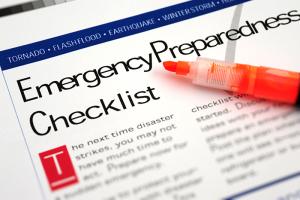The Joint Commission resumes surveys with changes
The Joint Commission resumed surveys last month
The Joint Commission began resuming regular surveys and reviews in June. The accrediting organization says safety is the first and foremost priority, and will conduct surveys to assess the impact that the coronavirus pandemic had on a facility’s operations and its current state. It is reviewing a variety of factors and criteria for determining where and which organizations will be surveyed, including identifying and prioritizing low-risk areas. The organization has modified the survey process to ensure physical distancing practices, and says surveys focus on a thorough assessment but do not retroactively review compliance.
HHS resources for hospitals during civil unrest
The Department of Health and Human Services’ Office of the Assistant Secretary for Preparedness and Response (ASPR) last month shared resources for protecting community hospitals and providing care during civil unrest. Collected by ASPR’s Technical Resources, Assistance Center, and Information Exchange, the resources cover planning for civil unrest and lessons learned; symptoms and treatment strategies for exposure to riot control tools (e.g., pepper spray, tear gas and rubber bullets); and hospital lockdown procedures for various types of events.
CMS actions on nursing home infection control
The Centers for Medicare & Medicaid Services (CMS) implemented several new infection control actions to combat COVID-19 in nursing homes. One action addresses the inconsistent rate of nursing home inspections mandated by CMS on March 4. State survey agencies that fail to inspect all nursing homes by July 31 will be required to submit a corrective action plan or have their federal funds under the Coronavirus Aid, Relief, and Economic Security Act redistributed. Another action expands penalties for nursing home deficiencies. The agency also is deploying additional technical assistance resources to nursing homes.
The Joint Commission statement on ductwork
The Joint Commission says it supports recommendations from the American Society for Health Care Engineering (ASHE) that filters only be replaced if needed based on facility policy and procedures, and does not recommend that ductwork be cleaned. When changes have been made, such as changes in pressurization for creation of COVID-19 specific care areas, ASHE recommends that steps to return the unit to non-COVID-19 care should include: ensure airflow relationships are correct and brought back minimally to the original design flow; verify that all pressure relationships for pressure-related rooms are appropriate; examine filtration media in air-handler units and identify if there is damage or other reason for changing; and verify air changes are as required.




